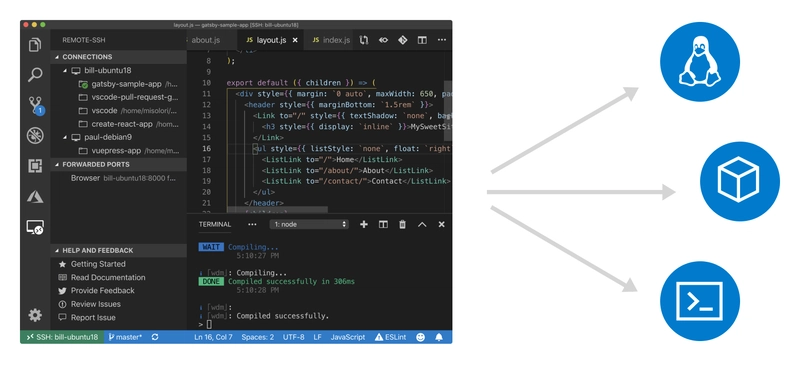Explanation on Arrays and Arrays method
Certainly, let's break down arrays and their methods in JavaScript: What is an Array? In JavaScript, an array is a special type of object used to store a collection of values (elements) under a single variable name. These values can be of different data types (numbers, strings, booleans, objects, even other arrays). Key Characteristics: Ordered: Elements in an array have a specific order, and their positions are indexed starting from 0. Mutable: You can change the elements within an array after it's created. Dynamic: Arrays can grow or shrink in size as needed. Creating an Array: Literal Notation: const myArray = [1, "hello", true, null]; Using the Array constructor: const anotherArray = new Array(5); // Creates an array with 5 empty slots const yetAnotherArray = new Array(1, 2, 3); Accessing Array Elements: Use square bracket notation with the index: const fruits = ["apple", "banana", "orange"]; console.log(fruits[0]); // Output: "apple" (first element) console.log(fruits[2]); // Output: "orange" (third element) Modifying Array Elements: Assign a new value to the desired index: fruits[1] = "grape"; console.log(fruits); // Output: ["apple", "grape", "orange"] Common Array Methods: push(): Adds one or more elements to the end of the array. fruits.push("mango"); pop(): Removes the last element from the array and returns it. const removedFruit = fruits.pop(); unshift(): Adds one or more elements to the beginning of the array. fruits.unshift("kiwi"); shift(): Removes the first element from the array and returns it. const firstFruit = fruits.shift(); slice(): Creates a shallow copy of a portion of the array. const citrusFruits = fruits.slice(1, 3); // Elements from index 1 to 2 (exclusive) splice(): Adds/removes elements from an array at a specified position. fruits.splice(1, 0, "pear"); // Insert "pear" at index 1 fruits.splice(2, 1); // Remove 1 element starting from index 2 concat(): Creates a new array by concatenating existing arrays. const combinedFruits = fruits.concat(["pineapple", "strawberry"]); join(): Joins all array elements into a single string, separated by a specified separator. const fruitString = fruits.join(", "); indexOf(): Returns the first index of a given element. const index = fruits.indexOf("apple"); includes(): Checks if an array includes a certain element. const hasBanana = fruits.includes("banana"); forEach(): Executes a provided function once for each array element. fruits.forEach(fruit => console.log(fruit)); map(): Creates a new array by applying a function to each element of the original array. const fruitLengths = fruits.map(fruit => fruit.length); filter(): Creates a new array with only the elements that pass a test provided by a function. const longFruits = fruits.filter(fruit => fruit.length > 5); This is a basic overview of arrays and their methods in JavaScript. There are many more methods available, each with its own specific purpose. I hope this helps!

Certainly, let's break down arrays and their methods in JavaScript:
What is an Array?
- In JavaScript, an array is a special type of object used to store a collection of values (elements) under a single variable name.
- These values can be of different data types (numbers, strings, booleans, objects, even other arrays).
Key Characteristics:
- Ordered: Elements in an array have a specific order, and their positions are indexed starting from 0.
- Mutable: You can change the elements within an array after it's created.
- Dynamic: Arrays can grow or shrink in size as needed.
Creating an Array:
- Literal Notation:
const myArray = [1, "hello", true, null];
-
Using the
Arrayconstructor:
const anotherArray = new Array(5); // Creates an array with 5 empty slots
const yetAnotherArray = new Array(1, 2, 3);
Accessing Array Elements:
- Use square bracket notation with the index:
const fruits = ["apple", "banana", "orange"];
console.log(fruits[0]); // Output: "apple" (first element)
console.log(fruits[2]); // Output: "orange" (third element)
Modifying Array Elements:
- Assign a new value to the desired index:
fruits[1] = "grape";
console.log(fruits); // Output: ["apple", "grape", "orange"]
Common Array Methods:
-
push(): Adds one or more elements to the end of the array.
fruits.push("mango");
-
pop(): Removes the last element from the array and returns it.
const removedFruit = fruits.pop();
-
unshift(): Adds one or more elements to the beginning of the array.
fruits.unshift("kiwi");
-
shift(): Removes the first element from the array and returns it.
const firstFruit = fruits.shift();
-
slice(): Creates a shallow copy of a portion of the array.
const citrusFruits = fruits.slice(1, 3); // Elements from index 1 to 2 (exclusive)
-
splice(): Adds/removes elements from an array at a specified position.
fruits.splice(1, 0, "pear"); // Insert "pear" at index 1
fruits.splice(2, 1); // Remove 1 element starting from index 2
-
concat(): Creates a new array by concatenating existing arrays.
const combinedFruits = fruits.concat(["pineapple", "strawberry"]);
-
join(): Joins all array elements into a single string, separated by a specified separator.
const fruitString = fruits.join(", ");
-
indexOf(): Returns the first index of a given element.
const index = fruits.indexOf("apple");
-
includes(): Checks if an array includes a certain element.
const hasBanana = fruits.includes("banana");
-
forEach(): Executes a provided function once for each array element.
fruits.forEach(fruit => console.log(fruit));
-
map(): Creates a new array by applying a function to each element of the original array.
const fruitLengths = fruits.map(fruit => fruit.length);
-
filter(): Creates a new array with only the elements that pass a test provided by a function.
const longFruits = fruits.filter(fruit => fruit.length > 5);
This is a basic overview of arrays and their methods in JavaScript. There are many more methods available, each with its own specific purpose. I hope this helps!
What's Your Reaction?




























